DUP: Jeffrey Donaldson's Windsor Framework dilemma
- Published
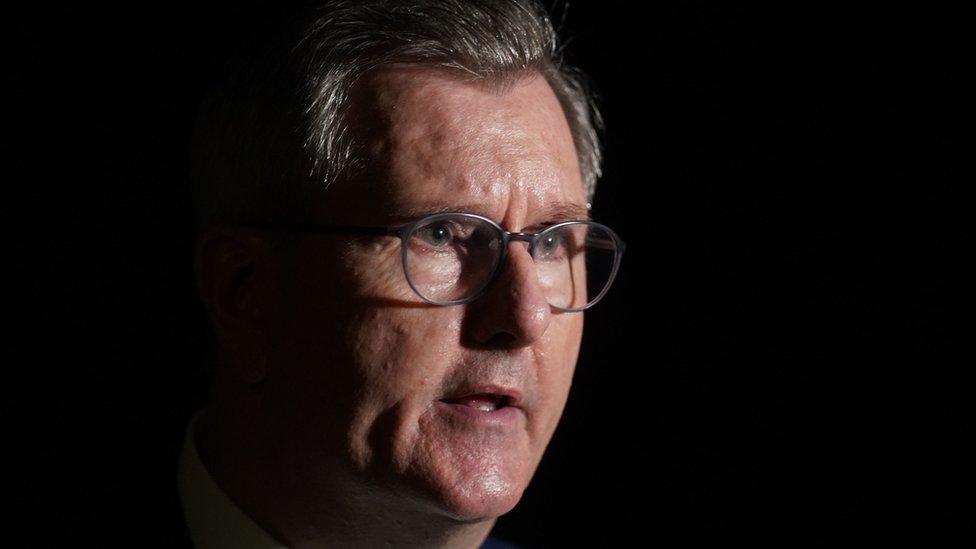
DUP leader Sir Jeffrey Donaldson has opposed the NI Protocol and Windsor Framework
The leader of the Democratic Unionist Party (DUP) is facing a big decision.
Sir Jeffrey Donaldson's choice could determine the future direction of his party, devolved government, and Northern Ireland itself.
For more than a year the DUP has been blocking the Stormont institutions in protest against post-Brexit trade barriers with Great Britain.
The party argues the arrangements undermine Northern Ireland's place in the United Kingdom.
But the UK government says the Windsor Framework - its deal on Northern Ireland with the European Union - is here to stay.
Although the DUP is still holding out for changes, Sir Jeffrey is under pressure to make a move.
Ulster Unionist Party leader Doug Beattie said he was pessimistic about the DUP returning to Stormont.
He did, however, welcome some positive messages in Sir Jeffrey's DUP conference speech on Saturday which hinted at progress being made in talks with the UK government.
In response, Sir Jeffrey said he wanted to "hold the government's feet to the fire and get them to move on the key areas where we need agreement".
So, should he restore Stormont, risking splits in his party? Or does he stand firm, leaving devolution in limbo?
Here are the key questions in how this crossroads for Northern Ireland's largest unionist party has developed and what is at stake.
What is the DUP's stance on Brexit?
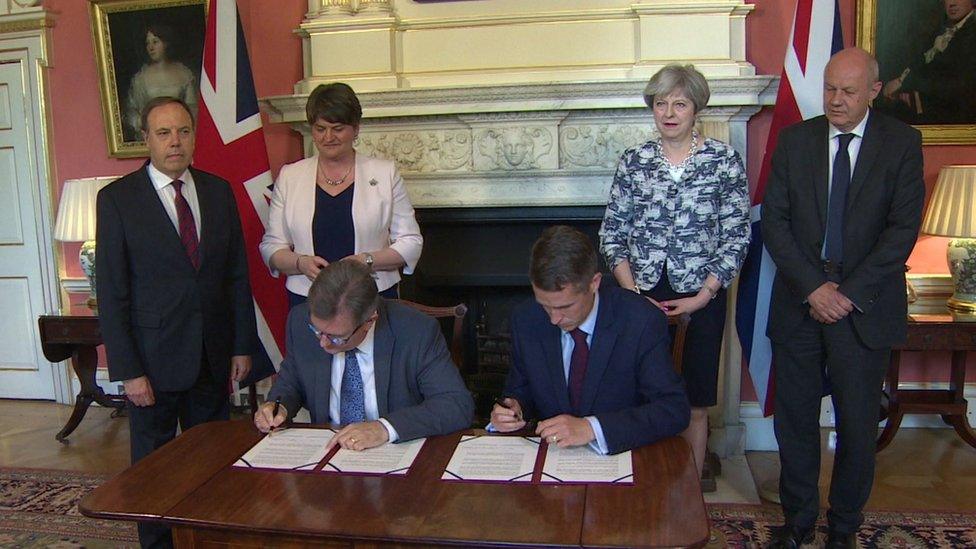
The DUP signing a confidence-and-supply agreement with the Conservative Party's minority government in 2017
The DUP campaigned in the 2016 referendum for the UK to leave the European Union.
A year later it held the balance of power at Westminster after a snap general election saw then-prime minister, Theresa May, leading a minority government.
The party opposed her ill-fated deal on how the UK would leave the EU and senior figures aligned themselves with more hard-line Brexiteers in the Conservative Party.
The DUP welcomed Boris Johnson succeeding Mrs May as prime minister after her plans ended in parliamentary deadlock.
Mr Johnson had expressed opposition to part of her deal known as the backstop - an insurance policy where the UK would retain EU trade rules to avoid Irish border checks if alternatives could not be agreed.
When he became prime minister, Boris Johnson sought support for his own plan which the DUP again opposed.
It involved the Northern Ireland Protocol, which kept the region inside the EU single market for goods - resulting in new checks and paperwork for products arriving from Great Britain.
After winning an overall majority in the 2019 election, Mr Johnson got his deal through parliament.
How did the DUP react to the Northern Ireland Protocol?
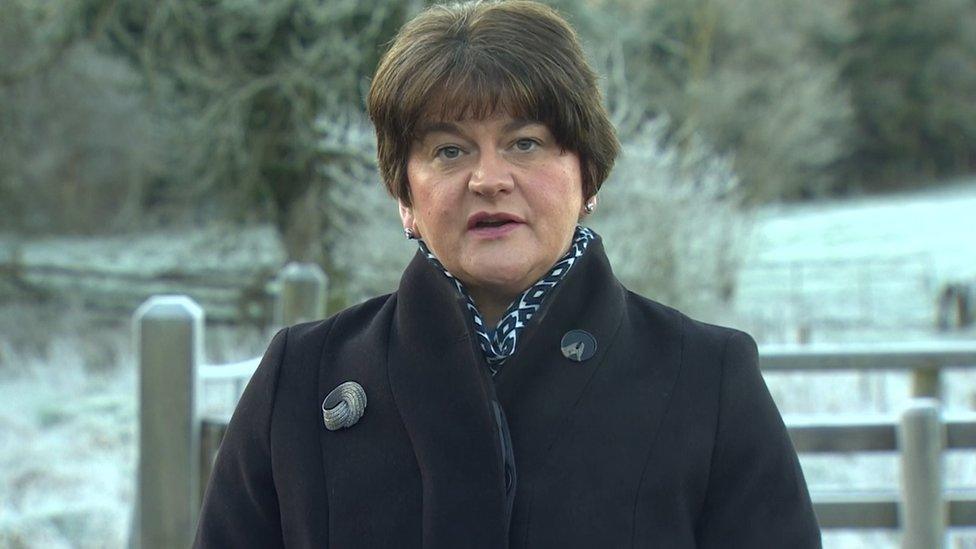
Former DUP leader Baroness Foster opposed the Northern Ireland Protocol
The DUP opposed the protocol but initially appeared to downplay the Irish Sea trade border when it came into effect in January 2021.
Baroness Foster, still party leader at the time, said the UK-EU trade deal was a "gateway of opportunity for the whole of the UK".
But as issues with the protocol became more apparent, there was growing discontent among unionists.
It contributed to a leadership crisis in the DUP which saw Baroness Foster ousted in an internal revolt and her successor Edwin Poots toppled after just three weeks in the job.
Sir Jeffrey Donaldson was installed as DUP leader and the party continued developing a tougher line against the protocol.
In July 2021, he set out the party's "seven tests" by which to judge any changes the UK and EU would make to the arrangements.
With no progress in sight, the DUP in February last year collapsed Stormont's power-sharing executive in protest.
The UK and EU agreed the Windsor Framework deal in March in a bid to address problems with the protocol, but the DUP has said it does not go far enough.
What are the DUP's seven tests?
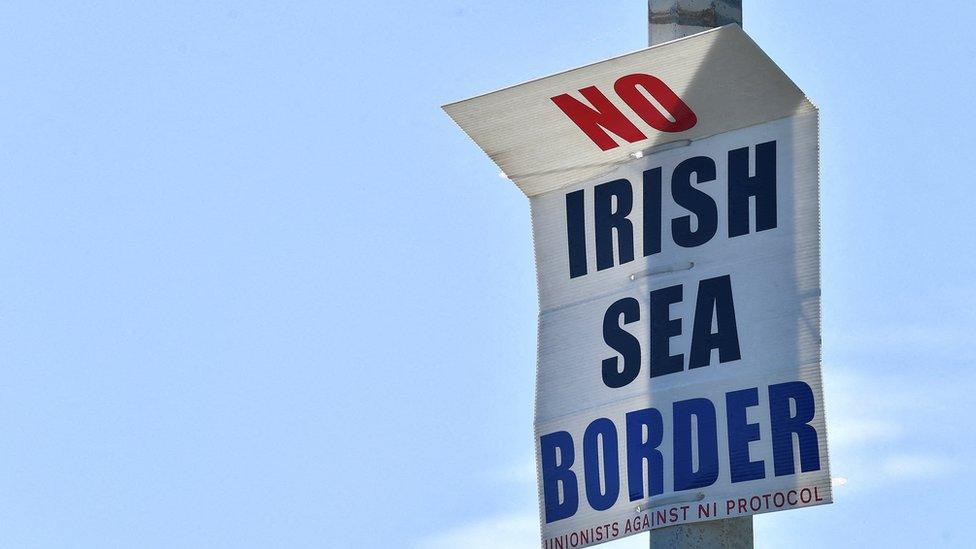
A poster reading "no Irish Sea border" at the port in Larne, County Antrim
The seven tests were set out during a debate in House of Commons.
The say post-Brexit arrangements for Northern Ireland must "avoid any diversion of trade" and "not constitute a border in the Irish Sea", with no checks on goods moving between Great Britain and Northern Ireland.
The party also said people in Northern Ireland need to have "a say in the making of the laws that govern them".
The DUP believes the protocol undermines the principle enshrined in the Good Friday Agreement that Northern Ireland's constitutional status can only be changed with explicit democratic consent.
It said any arrangement should "preserve the letter and spirit of Northern Ireland's constitutional guarantee".
Where does the DUP stand on the Windsor Framework?
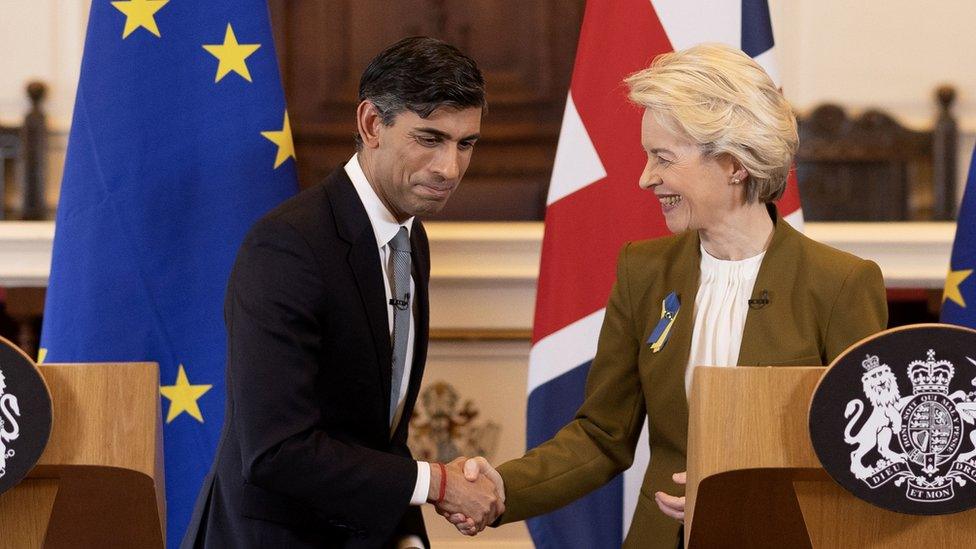
Prime Minister Rishi Sunak and European Commission president Ursula von der Leyen announcing the Windsor Framework deal
The DUP said the Windsor Framework represented "significant progress" in a number of areas but there remained "key issues of concern".
It has continued talks with the UK government to seek further legal assurances of Northern Ireland's place within the UK internal market.
The party said it would study the deal against its seven tests before reaching a "collective" conclusion on whether to end its boycott of Stormont.
But some senior figures, such as MPs Sammy Wilson and Ian Paisley and former deputy leader Lord Dodds, have expressed reservations.
Former DUP leader Edwin Poots said in September the party would need to see something "seismic" from Downing Street to resume power-sharing.
Mr Wilson described so-called red and green trade lanes taking effect under the framework this month as confirmation that "Northern Ireland has got a border in the Irish Sea".
What is at stake for Jeffrey Donaldson?
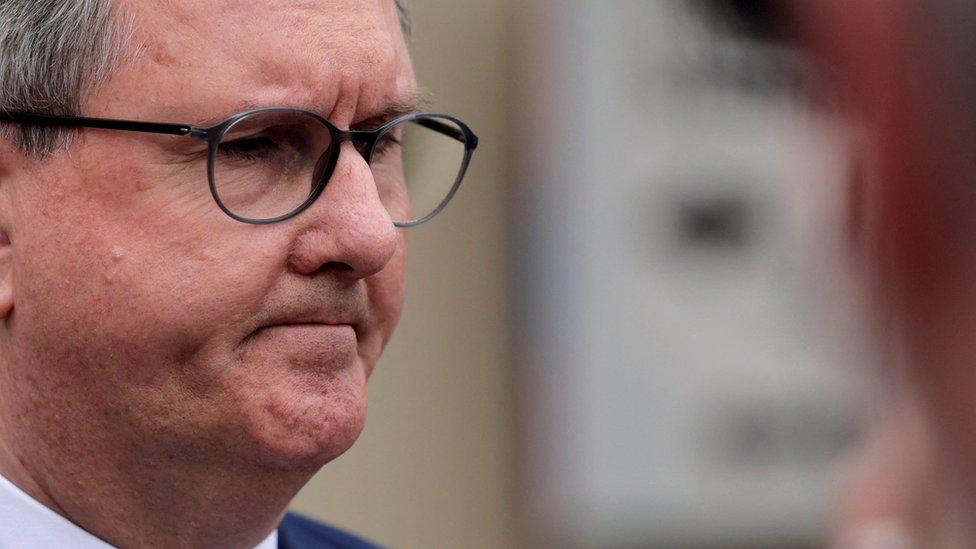
In toughening opposition to the protocol, the DUP leader helped calm party ranks after the turmoil of two years ago and saw off an electoral challenge from more hard-line rivals.
Returning to Stormont without the party's demands being met risks these issues resurfacing.
On the other hand, continuing to veto devolved government may cause some voters frustrated with the deadlock to turn away from unionism.
The DUP may have consolidated its position as Northern Ireland's main unionist party in recent assembly and council elections, but the party fell to second place overall behind Sinn Féin - a party that wants to bring about a united Ireland.
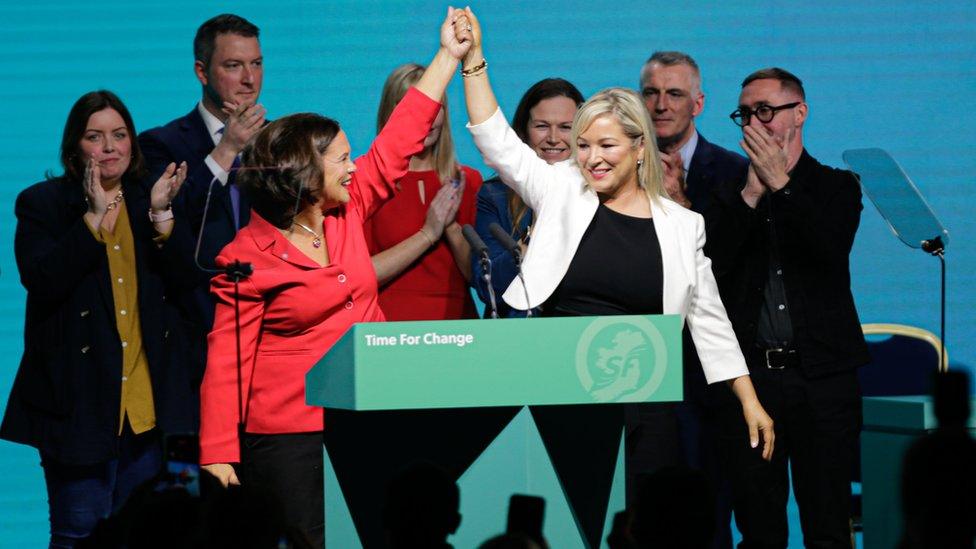
Sinn Féin president Mary Lou McDonald with vice-president Michelle O'Neill at the party's conference in Dublin last year
The Alliance Party - which is unaligned on the constitutional question - also had an increase in its vote share, becoming the third-largest party in Northern Ireland.
The DUP will be weighing up what impact staying out of Stormont could have on the General Election due next year.
If there is no return to devolved government, for some it will raise another question: What is the alternative?
Northern Ireland Secretary Chris Heaton-Harris set a budget for Stormont this year in the absence of local ministers, leaving unelected civil servants faced with making substantial cuts.
Taoiseach (Irish prime minister) Leo Varadkar has called for a "plan B" if the Stormont institutions are not restored.
What happens next?
Addressing the DUP's annual conference, Sir Jeffrey said they are "making progress" in talks with the UK government on the Windsor Framework "but there remains more work to do".
The DUP leader insisted his party will "not be afraid to say no" if any government offer does not deal with the DUP's "fundamental concerns".
However, he also said having devolved government is "essential" in making the case for Northern Ireland's future within the UK and argued against "direct rule" from Westminster.